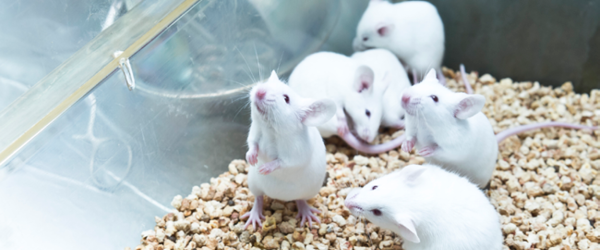We applaud new recommendation to end cruel use of animals in antibody production
We call on EU regulators to take action – no more excuses!

The European Centre for the Validation of Alternative Methods (ECVAM) has published a recommendation urging scientists to recognise the benefits of non-animal derived antibodies and to stop cruel and outdated methods that use live animals.
We welcome this recommendation and call on EU regulators to take immediate action.
Antibodies are special proteins produced by the immune system to help prevent harmful viruses and bacteria from damaging the body. They are used widely in biomedical research, drug development, disease diagnosis and treatment.
Almost one million animals are used in antibody production annually in the EU despite the scientific and economic benefits of non-animal production methods, which have been available for many years. Antibodies produced by ‘phage-display technology’, the most well-known non-animal method, are of higher quality, more stable, more relevant, and more reproducible than antibodies produced in animals. They are also much faster and cheaper to produce.
Shockingly, use of the mouse ascites method, a notoriously archaic process where antibodies are grown inside the swelling bellies of mice, appears to be on the rise in the EU. Between 2015 and 2017, there was a 65% increase in the use of this method with France being responsible for 98% of uses. Other member states including Germany, Spain, Hungary, and the Czech Republic are also still using this cruel method to produce antibodies.
Dr Katy Taylor, our Director of Science & Regulatory Affairs says “We welcome the recommendation by ECVAM that animals should no longer be used for the development and production of antibodies and we join their call on EU regulators to stop authorizing the use of animals for this purpose.
“There’s no excuse for the shocking increase in the use of the mouse ascites method in the EU. We will be writing to France, Germany, Spain, Hungary and the Czech Republic to urge them to end this cruel practice and embrace the available non-animal methods, which are more humane, sophisticated and capable of producing better quality antibodies”.
